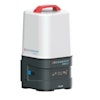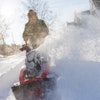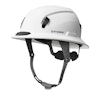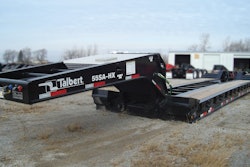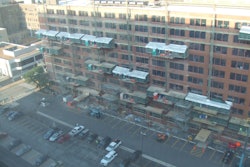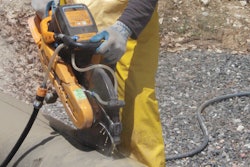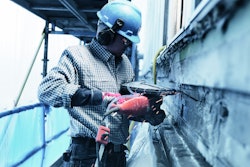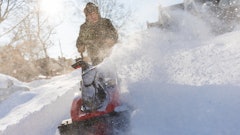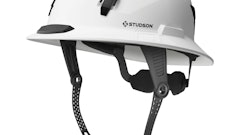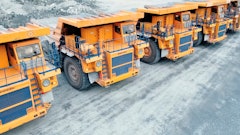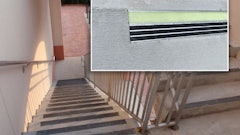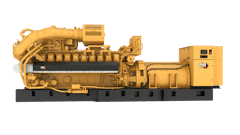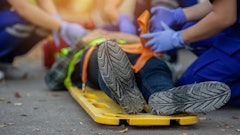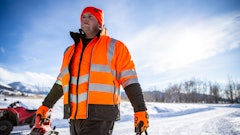
At the end of a long work day, you just want to go home to your family, have dinner, visit with the kids, take care of some household chores and then relax for the evening. You look forward to grilling or going to the movies. Your spouse and the kids are excited to see you, or you have plans with your friends. You work hard so you can play hard. Everyone wants to go home at the end of the day, which makes it so important to be safe when hauling equipment from jobsite to jobsite.
Loose chains and unsecured items - Probably the most common safety concern when hauling equipment is having loose tie-down chains or unsecured items bouncing around on the trailer bed. Once you have your equipment properly positioned, make sure you tighten all tie-down chains. Loose chains can allow the load to shift, causing improper load balance. Also, make sure all items are secured, whether they be equipment accessories, wheel chocks, tools, spare tires, or anything else. A tool or wheel chock bouncing down the highway can be a deadly hazard.
Cracked wires and leaky hoses - Having proper working lights is important, but the main cause when lights aren’t working is a bad ground wire. There are several causes for this, but a common cause is cracked wire insulation. This lets water and other chemicals seep through the wires and cause corrosion. Rust or corrosion on the ground terminal is another cause.
If your trailer is equipped with air or hydraulic lines, make sure all connections are sealed properly. Leaky hoses can cause brakes to fail or come on suddenly. Even faulty wiring on electric brakes can cause a failure. Periodically check the condition of all wires and hoses to make sure everything is in good working order.
Under-inflated or over-inflated tires - Properly inflated tires offer the best in trailer control, tire wear, and fuel economy. If your trailer tires are under inflated, it can make the trailer hard to pull, cause braking issues, excessive tire wear, and be hard to turn corners. If the tires are over inflated, it can also cause control issues and excessive tire wear. Properly inflated, tires give their best performance and wear characteristics.
Unbalanced loads - Trailers have a balance point in order for them to tow properly. When the load is not positioned correctly, it can cause stress on suspension and frame parts, and stress on the tow vehicle. If the load position is too forward, it can cause the front of the tow vehicle to lighten and lose steering control. If the load position is too far back, it can cause the back of the tow vehicle to be light and also cause steering control issues. If the load is positioned too far to one side of the trailer, it can cause suspension damage and increases the risk of a tipped load going around a corner. Make sure the load is positioned evenly over the wheel area of the trailer on a tag type trailer, or properly positioned on the deck of a lowboy or fifth-wheel trailer.
Excessive speeds and road hazards - Sometimes road hazards are hard to avoid, but hitting a pothole or marked bump too fast could jar your load and allow it to shift. If you must hit a road hazard, slow down and ease over it. Avoid excessive speeds when hauling equipment. You’re not in a race and five to 10 minutes isn’t worth the risk of injury or death. Losing a piece of equipment or stopping to pick up pieces will take much longer than the time you save driving too fast.
Stay safe when hauling - Your due diligence is important so everyone can get home to their families. Everyone wants to get home without injury or inconvenience. While these five tips are great to consider, follow all safety rules and highway regulations and not only will you be home in time for dinner, everyone else will be as well.

